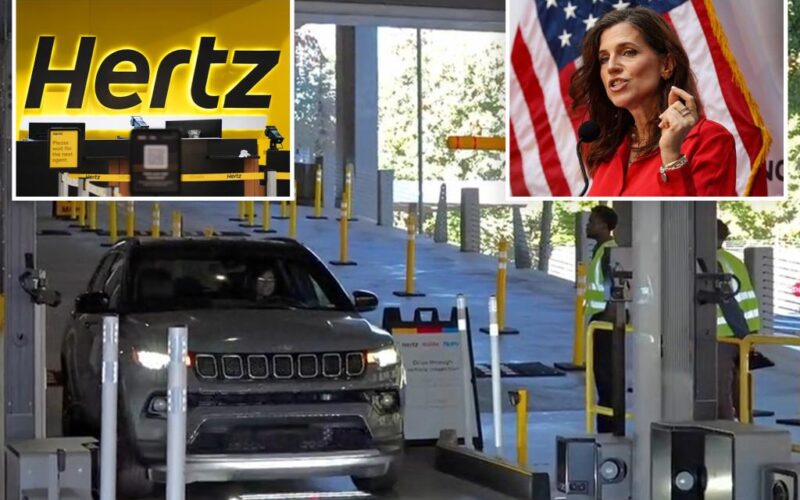A top Republican lawmaker on Wednesday fired off a letter to Hertz demanding answers over its artificial intelligence-powered scanners that bills car renters for minor scuffs and dents — without them being given a chance to appeal the charges.
Rep. Nancy Mace, who chairs the House Subcommittee on Cybersecurity, Information Technology and Government Innovation, asked Hertz CEO Gil West to provide her office with a “better understanding” of the company’s “experience as an early adopter of AI scanning technology,” according to the letter obtained by The Post.
The South Carolina congresswoman questioned how the AI scanners “may impact” Hertz’s “work as a vendor to the Federal government.”
Mace’s letter gave Hertz until Aug. 27 to reply.
The missive comes after dozens of Hertz customers complained about getting slapped with AI-generated bills ranging from $190 to $500 for minor dings and scratches — with no human review and little chance to fight back.
A Hertz renter in Atlanta said he was billed $440 for a one-inch scuff on one of the car’s wheels.
The Post has sought comment from Hertz.
At the heart of the controversy is the UVeye system — a set of AI-powered cameras that photograph cars before and after rental and then automatically spit out damage reports.
Hertz has deployed the scanners at six airports and plans to expand them to additional locations nationwide.
The company has bragged about the technology as a win for transparency and speed. Promotional materials say the system can inspect a vehicle in seconds, compare images, and generate clear reports for customers.
“Through consistent, data-backed assessments and clear documentation, our customers can have complete confidence in the condition of our vehicles both pre- and post-rent,” Hertz executive vice president Mike Moore said in a statement cited by lawmakers.
Hertz says that “over 97% of vehicles scanned show no billable damage,” which “reinforc[es] that the vast majority of rentals are incident-free.”
The system is designed to flag only chargeable issues, with thresholds in place so customers are not billed for ordinary wear and tear — for example, a dent must exceed one inch before it is assessed, according to a company rep.
A company spokesperson told The Post last month: “As we work to enhance our fleet safety, quality, and reliability for our customers, this new technology is aimed at proactively managing vehicle maintenance and enhancing vehicle inspections.”
The spokesperson added that whether damage is detected by AI or by human inspection, customers can dispute charges through the company’s Customer Care team via email, phone, or in person at rental locations.
Those using digital vehicle inspections also have access to a dedicated chat function that ensures consistent answers to common questions.
If a customer disputes a charge through that channel, live agents review the flagged images and communicate their decision through the AI system.
“By automatically scanning vehicles at both pickup and return customers get a more streamlined rental experience, greater confidence that they won’t be charged for damage that didn’t occur during their rental, and a more efficient resolution process when damage does occur,” the Hertz rep said.








